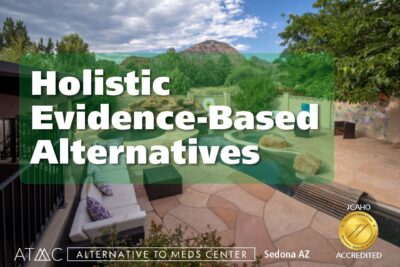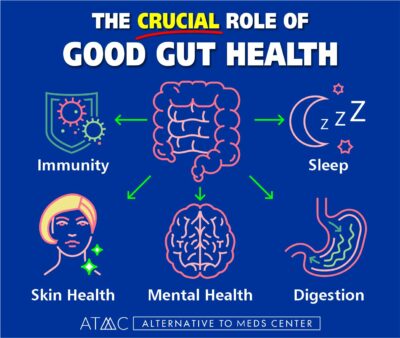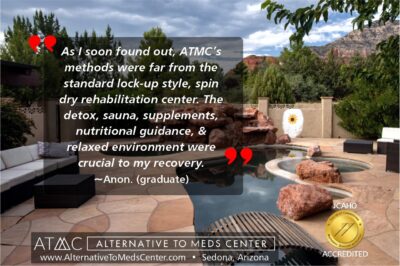1. Gorelick DA, Kussen SZ, Khaun I, Paranoid delusions and auditory hallucinations associated with digoxin intoxication. J Nerv Ment Dis and NCBI 1978 Nov [cited 2023 Nov 20]
2. Heavner W, “Why do humans hallucinate on little sleep?” Wu Tsai Neurosciences Institute, Stanford University [published online 2016 Feb 19] [cited 2023 Nov 20]
3. Sahoo S, Mehra A, Grover S, Acute Hyperglycemia Associated With Psychiatric Symptoms in a Patient with Diabetes Mellitus: A Case Report. Innovations in Clinical Neuroscience [INTERNET] 2016 Nov/Dec [cited 2023 Nov 20]
4. Oz SG, Tozlu M, Yalcin SS, Sozen T, Guven GS. Mercury vapor inhalation and poisoning of a family. Inhal Toxicol. 2012 Aug;24(10):652-8. doi: 10.3109/08958378.2012.708677. PMID: 22906171. [cited 2023 Nov 20]
5. Wu HE, Abdel-Gawad NM, Gharbaoui Y, Teixeira AL, Pigott TA. An Unusual Case of Acute Psychosis With Obsessive-Compulsive Features Following Arsenic Poisoning. J Psychiatr Pract. 2017 Sep;23(5):382-385. doi: 10.1097/PRA.0000000000000254. PMID: 28961669.[cited 2023 Nov 20]
6. Brady KT, Lydiard RB, Malcolm R, Ballenger JC. Cocaine-induced psychosis. J Clin Psychiatry. 1991 Dec;52(12):509-12. PMID: 1752853.[cited 2023 Nov 20]
7. Shah D, Chand P, Bandawar M, Benegal V, Murthy P. Cannabis induced psychosis and subsequent psychiatric disorders. Asian J Psychiatr. 2017 Dec;30:180-184. doi: 10.1016/j.ajp.2017.10.003. Epub 2017 Oct 16. PMID: 29096386. [cited 2023 Nov 20]
8. Dording CM, Sinicropi-Yao L, Papakostas G, Matthews JD, Nierenberg AA, Fava M, Mischoulon D. The response of psychotic-like symptoms to fluoxetine monotherapy in non-psychotic major depressive disorder. Nord J Psychiatry. 2009;63(5):420-5. doi: 10.1080/08039480903015396. PMID: 19521922. [cited 2021 Nov 24]
9. Zhang N, Du SM, Zhang JF, Ma GS. Effects of Dehydration and Rehydration on Cognitive Performance and Mood among Male College Students in Cangzhou, China: A Self-Controlled Trial. Int J Environ Res Public Health. 2019 May 29;16(11):1891. doi: 10.3390/ijerph16111891. PMID: 31146326; PMCID: PMC6603652. [cited 2021 Nov 24]
10. Giuliani C, Peri A. Effects of Hyponatremia on the Brain. J Clin Med. 2014;3(4):1163-1177. Published 2014 Oct 28. doi:10.3390/jcm3041163 [cited 2021 Nov 24]
11. Empting LD. Neurologic and neuropsychiatric syndrome features of mold and mycotoxin exposure. Toxicol Ind Health. 2009 Oct-Nov;25(9-10):577-81. doi: 10.1177/0748233709348393. PMID: 19854819. [cited 2021 Nov 24]
12. Mainerova B, Prasko J, Latalova K, Axmann K, Cerna M, Horacek R, Bradacova R. Alcohol withdrawal delirium – diagnosis, course and treatment. Biomed Pap Med Fac Univ Palacky Olomouc Czech Repub. 2015 Mar;159(1):44-52. doi: 10.5507/bp.2013.089. Epub 2013 Dec 11. PMID: 24399242.[cited 2021 Nov 24]
13. Firth J, Carney R, Stubbs B, Teasdale SB, Vancampfort D, Ward PB, Berk M, Sarris J. Nutritional Deficiencies and Clinical Correlates in First-Episode Psychosis: A Systematic Review and Meta-analysis. Schizophr Bull. 2018 Oct 17;44(6):1275-1292. doi: 10.1093/schbul/sbx162. PMID: 29206972; PMCID: PMC6192507. [cited 2021 Nov 24]
14. van Winkel R, Stefanis NC, Myin-Germeys I. Psychosocial stress and psychosis. A review of the neurobiological mechanisms and the evidence for gene-stress interaction. Schizophr Bull. 2008;34(6):1095-1105. doi:10.1093/schbul/sbn101[cited 2021 Nov 24]
15. Ward M, Druss B. The epidemiology of diabetes in psychotic disorders. Lancet Psychiatry. 2015 May;2(5):431-451. doi: 10.1016/S2215-0366(15)00007-3. Epub 2015 Apr 28. PMID: 26360287. [cited 2021 Nov 24]
16. Sahoo S, Mehra A, Grover S. Acute Hyperglycemia Associated with Psychotic Symptoms in a Patient with Type 1 Diabetes Mellitus: A Case Report. Innov Clin Neurosci. 2016 Dec 1;13(11-12):25-27. PMID: 28210522; PMCID: PMC5300708. [cited 2021 Nov 24]
17. FDA label Fanapt (iloperidone) tablets [cited 2021 Nov 24]
18. Maglione M, Maher AR, Hu J, Wang Z, Shanman R, Shekelle PG, Roth B, Hilton L, Suttorp MJ, Ewing BA, Motala A, Perry T. Off-Label Use of Atypical Antipsychotics: An Update [Internet]. Rockville (MD): Agency for Healthcare Research and Quality (US); 2011 Sep. Report No.: 11-EHC087-EF. PMID: 22132426. [cited 2021 Nov 24]
19. McKean A, Monasterio E. Off-label use of atypical antipsychotics: cause for concern? CNS Drugs. 2012 May 1;26(5):383-90. doi: 10.2165/11632030-000000000-00000. PMID: 22448598. [cited 2021 Nov 26]
20. Maher AR, Theodore G. Summary of the comparative effectiveness review on off-label use of atypical antipsychotics. J Manag Care Pharm. 2012 Jun;18(5 Suppl B):S1-20. doi: 10.18553/jmcp.2012.18.s5-b.1. PMID: 22784311.[cited 2021 Nov 26]
21. Aberle D, Wu SE, Oklu R, Erinjeri J, Deipolyi AR. Association Between Allergies and Psychiatric Disorders in Patients Undergoing Invasive Procedures. Psychosomatics. 2017 Sep-Oct;58(5):490-495. doi: 10.1016/j.psym.2017.03.015. Epub 2017 Mar 28. PMID: 28527521 [cited 2021 Nov 26]
22. Kiecolt-Glaser, Janice K. “Stress, Food, and Inflammation: Psychoneuroimmunology and Nutrition at the Cutting Edge.” Psychosomatic Medicine 72, no. 4 (May 2010): 365–69. https://doi.org/10.1097/PSY.0b013e3181dbf489 [cited 2021 Nov 26]
23. Lakhan, Shaheen E and Vieira, Karen F “Nutritional and herbal supplements for anxiety and anxiety-related disorders: systematic review,” summary of 24 clinical trials, AMJ, US National Lib.of Medicine [2009 Sept] PMID 20919532 [Internet] 2010 Oct [cited 2021 Nov 26]
24. “CBT Better than Medication For Treating Social Anxiety Disorder.” The Psychiatry Advisor [Internet] 2014 Sep 26 [cited 2021 Nov 26]
25. Stallones L, Beseler CL. Assessing the connection between organophosphate pesticide poisoning and mental health: A comparison of neuropsychological symptoms from clinical observations, animal models and epidemiological studies. Cortex. 2016 Jan;74:405-16. doi: 10.1016/j.cortex.2015.10.002. Epub 2015 Oct 28. PMID: 26654853.[cited 2021 Nov 26]
26. Sánchez-Santed F, Colomina MT, Herrero Hernández E. Organophosphate pesticide exposure and neurodegeneration. Cortex. 2016 Jan;74:417-26. doi: 10.1016/j.cortex.2015.10.003. Epub 2015 Oct 20. PMID: 26687930. [cited 2021 Nov 26]
27. Lachance L, Ramsey D. Food, mood, and brain health: implications for the modern clinician. Mo Med. 2015;112(2):111-115. [cited 2021 Nov 26]
28. Wani, Ab Latif, Sajad Ahmad Bhat, and Anjum Ara. “Omega-3 Fatty Acids and the Treatment of Depression: A Review of Scientific Evidence.” Integrative Medicine Research 4, no. 3 (September 2015): 132–41. https://doi.org/10.1016/j.imr.2015.07.003 [cited 2021 Nov 26]
29. Lindseth, Glenda, Brian Helland, and Julie Caspers. “The Effects of Dietary Tryptophan on Affective Disorders.” Archives of Psychiatric Nursing 29, no. 2 (April 2015): 102 [cited 2021 Nov 26]
30. Savage KM, Stough CK, Byrne GJ, et al. Kava for the treatment of generalised anxiety disorder (K-GAD): study protocol for a randomised controlled trial. Trials. 2015;16:493. Published 2015 Nov 2. doi:10.1186/s13063-015-0986-5. [cited 2021 Nov 26]
31. Hepsomali P, Groeger JA, Nishihira J, Scholey A. Effects of Oral Gamma-Aminobutyric Acid (GABA) Administration on Stress and Sleep in Humans: A Systematic Review.Front Neurosci. 2020;14:923. Published 2020 Sep 17. doi:10.3389/fnins.2020.00923. [cited 2021 Nov 26]
32. Jakaria M, Azam S, Haque ME, et al. Taurine and its analogs in neurological disorders: Focus on therapeutic potential and molecular mechanisms. Redox Biol. 2019;24:101223. doi:10.1016/j.redox.2019.101223. [cited 2021 Nov 26]
33. Hoge, Elizabeth A., Eric Bui, Luana Marques, Christina A. Metcalf, Laura K. Morris, Donald J. Robinaugh, John J. Worthington, Mark H. Pollack, and Naomi M. Simon. “Randomized Controlled Trial of Mindfulness Meditation for Generalized Anxiety Disorder: Effects on Anxiety and Stress Reactivity.” The Journal of Clinical Psychiatry 74, no. 8 (August 2013): 786–92. https://doi.org/10.4088/JCP.12m08083. [cited 2021 Nov 26]
34. Gu, Jenny, Clara Strauss, Rod Bond, and Kate Cavanagh. “How Do Mindfulness-Based Cognitive Therapy and Mindfulness-Based Stress Reduction Improve Mental Health and Wellbeing? A Systematic Review and Meta-Analysis of Mediation Studies.” Clinical Psychology Review 37 (April 1, 2015): 1–12. “https://doi.org/10.1016/j.cpr.2015.01.006 [cited 2021 Nov 26]
35. Acupuncture for anxiety and anxiety disorders–a systematic literature review. Acupunct Med. 2007 Jun;25(1-2):1-10. doi: 10.1136/aim.25.1-2.1. PMID: 17641561. [cited 2021 Nov 26]
36. Choudhary AK, Lee YY. Neurophysiological symptoms and aspartame: What is the connection? Nutr Neurosci. 2018 Jun;21(5):306-316. doi: 10.1080/1028415X.2017.1288340. Epub 2017 Feb 15. PMID: 28198207. [cited 2022 June 20]
37. Craft, Lynette L., and Frank M. Perna. “The Benefits of Exercise for the Clinically Depressed.” Primary Care Companion to The Journal of Clinical Psychiatry 6, no. 3 (2004): 104–11. [cited 2022 June 20]
38. Kondo, Michelle C., Sara F. Jacoby, and Eugenia C. South. “Does Spending Time Outdoors Reduce Stress? A Review of Real-Time Stress Response to Outdoor Environments.” Health & Place 51 (May 1, 2018): 136–50.” https://doi.org/10.1016/j.healthplace.2018.03.001. [cited 2022 June 20]
39. Capaldi, Colin A., Raelyne L. Dopko, and John M. Zelenski. “The Relationship between Nature Connectedness and Happiness: A Meta-Analysis.” Frontiers in Psychology 5 (2014). https://doi.org/10.3389/fpsyg.2014.00976 [cited 2022 June 20]
40. Rea WJ, Didriksen N, Simon TR, Pan Y, Fenyves EJ, Griffiths B. Effects of toxic exposure to molds and mycotoxins in building-related illnesses. Arch Environ Health. 2003 Jul;58(7):399-405. doi: 10.1080/00039896.2003.11879140. PMID: 15143852. [cited 2022 June 20]
41. Schmidt P, Schaller J, Shoemaker R, Mold Warriors: Fighting America’s Hidden Health Threat Paperback – published April 1, 2005 [cited 2022 June 20]
42. 13 Ingredients to Avoid in Personal Care Productsby Meghan Telpner Last updated on July 22nd, 2020.
43. Environmental Working Group Report: Organic Packaged Foods Only ‘Clean’ Option for Consumers Over 2,000 Chemicals – Many Toxic – Allowed in Non-Organic Packaged Food Mar 5, 2019. [cited 2022 June 20]
44. Prasko J. Bright light therapy. Neuro Endocrinol Lett. 2008 Nov;29 Suppl 1:33-64. PMID: 19029878. [cited 2022 June 20]
45. Ferracioli-Oda E, Qawasmi A, Bloch MH. Meta-analysis: melatonin for the treatment of primary sleep disorders. PLoS One. 2013 May 17;8(5):e63773. doi: 10.1371/journal.pone.0063773. PMID: 23691095; PMCID: PMC3656905. [cited 2022 June 20]
46. Shechter A, Kim EW, St-Onge MP, Westwood AJ. Blocking nocturnal blue light for insomnia: A randomized controlled trial. J Psychiatr Res. 2018 Jan;96:196-202. doi: 10.1016/j.jpsychires.2017.10.015. Epub 2017 Oct 21. PMID: 29101797; PMCID: PMC5703049. [cited 2022 June 20]
47. Liu SF, Lee YL, Liang JC. Shape design of an optimal comfortable pillow based on the analytic hierarchy process method. J Chiropr Med. 2011;10(4):229-239. doi:10.1016/j.jcm.2011.04.002 [cited 2022 June 20]
48. Drake C, Roehrs T, Shambroom J, Roth T. Caffeine effects on sleep taken 0, 3, or 6 hours before going to bed. J Clin Sleep Med. 2013;9(11):1195-1200. Published 2013 Nov 15. doi:10.5664/jcsm.3170 [cited 2022 June 20]
49. Adib-Hajbaghery M, Mousavi SN. The effects of chamomile extract on sleep quality among elderly people: A clinical trial. Complement Ther Med. 2017 Dec;35:109-114. doi: 10.1016/j.ctim.2017.09.010. Epub 2017 Oct 13. PMID: 29154054. [cited 2022 June 20]
50. Aucoin, M, LaChance L, Cooley K, Kidd S, Diet and Psychosis: A Scoping Review Journal of neuropsychobiology Vol 79, Issue !, Feb 2020 [cited 2023 Nov 20]

 Diet modification
Diet modification Some of the most common reasons for triggering an episode of psychosis range from experimenting with recreational drugs, to suddenly stopping drinking alcohol after long-term use, to being exposed to some kind of environmental toxin, lack of sleep, poor diet, stress overload, and even to medical conditions.
Some of the most common reasons for triggering an episode of psychosis range from experimenting with recreational drugs, to suddenly stopping drinking alcohol after long-term use, to being exposed to some kind of environmental toxin, lack of sleep, poor diet, stress overload, and even to medical conditions. It is well documented that physicians are in the vast majority trying their best to help their patients. However, let us remember that pronouncing a mental disorder label does not actually fix what is wrong. As in the case of so many of our clients at Alternative to Meds Center, once the reason(s) underlying symptoms are discovered, and after addressing the cause(s), labels have little relevance.
It is well documented that physicians are in the vast majority trying their best to help their patients. However, let us remember that pronouncing a mental disorder label does not actually fix what is wrong. As in the case of so many of our clients at Alternative to Meds Center, once the reason(s) underlying symptoms are discovered, and after addressing the cause(s), labels have little relevance. 







